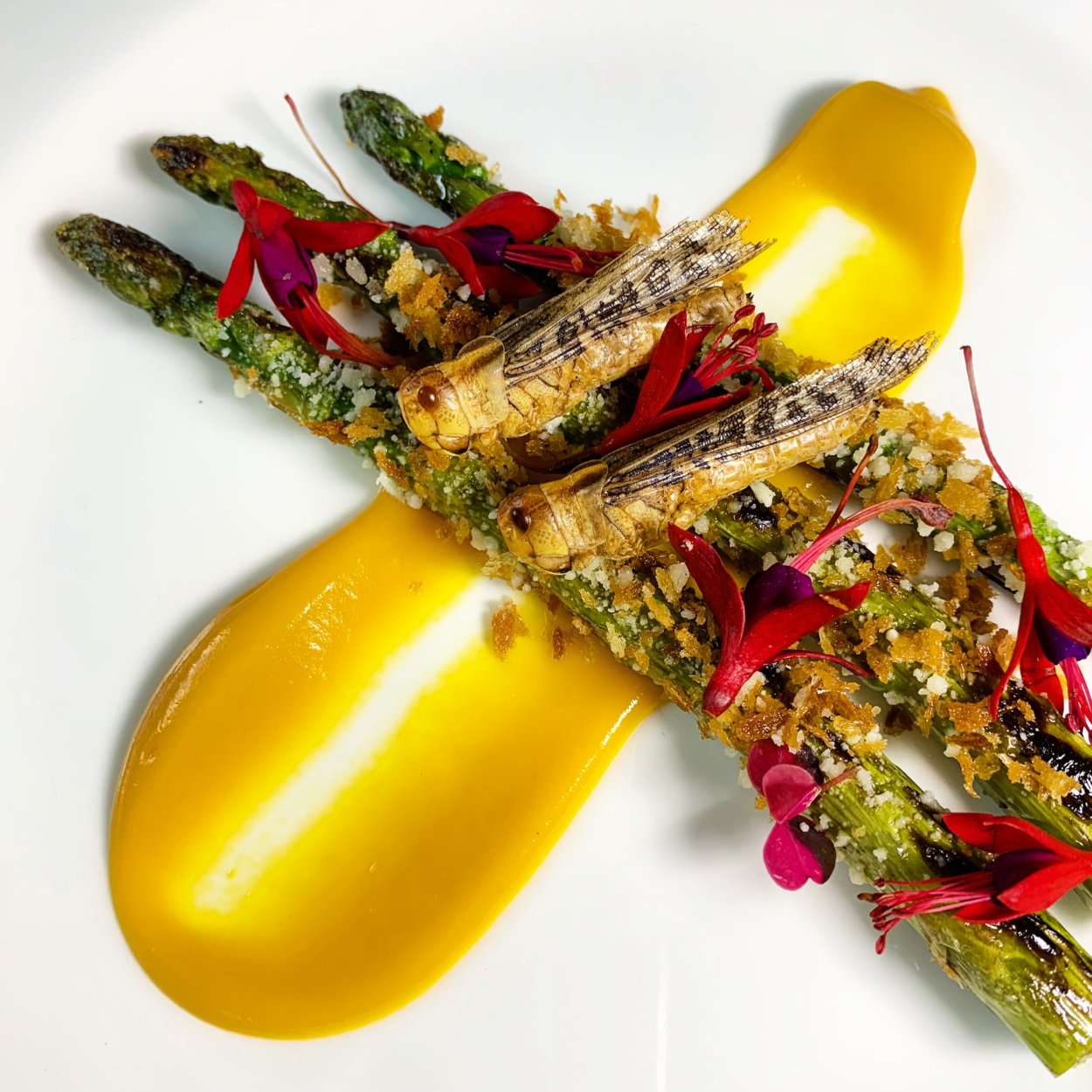Don’t bug out when you learn about this chef’s key ingredient
A few years ago, Joseph Yoon, professional chef and executive director of Brooklyn Bugs, learned three interesting facts.
- One: The Food and Agriculture Organization of the United Nations recommended in a 2013 report that edible insects are a sustainable source of protein that could help stem the tide of growing food insecurity.
- Two: There are over 2,000 species of edible insects.
- Three: Insects are delicious.
It all seemed simple enough to Yoon; bugs could be the next culinary breakthrough. This revelation changed the course of his life and his career.
“For me, incorporating edible insects into my dishes felt like a very organic process,” Yoon said. “It hit a lot of issues I’m interested in sustainability, nutrition, and, of course, food. A New York chef working with bugs has really amplified the issue of edible insects."
Signal-boosting edible insects is what Brooklyn Bugs, Yoon’s company, is all about. He wants to demonstrate to Americans that edible insects are a safe and versatile form of protein and, like any other ingredient, can be a key component of any dish.
On Thursday, April 4, Yoon will demonstrate this concept to the Purdue University community as he headlines a talk entitled What IF Eating Insects Saved the Planet? The event is 5:30-7 p.m. Thursday (April 4) in the Wilmeth Active Learning Center, Room 1132. Jill Ditmire of Indianapolis’ WFYI Radio will moderate a discussion between Yoon and Andrea Liceaga, associate professor of food science and director of the Sensory Evaluation Laboratory at Purdue.
Liceaga’s research focuses on developing alternative proteins and insect-based products like cricket protein powders or meat products derived from Asian Carp, an invasive fish species. At the talk, Yoon will provide samples of different insect-based dishes, including samples formulated with grasshoppers and black ants. Yoon will also cook for Spring Fest attendees on April 6-7 at Purdue. The Spring Fest menu includes mealworms, silkworms, scorpions, and other edible insects and will be available in the Nelson Hall of Food Science.

Liceaga said Yoon’s work has the potential to normalize the public’s relationship to edible insects. “In America, the perception of insects is negative and there is often a phobia surrounding them,” she continued. “In many other cultures, eating insects is perfectly normal.” By creating beautiful, tasty dishes with insects this phobia and stigma can be lessened.
Yoon said he was drawn to edible insects largely because of the interesting flavor profiles they provide. His name may now be synonymous with edible insect activism, but he still views his primary role as a chef.
“I have to be behind the food I serve. First and foremost, I try to create food that will be delicious. It will also happen to have bugs in it,” Yoon explained.
Liceaga and Yoon have been collaborating on uses for different insect-based products coming out of Liceaga’s lab, including recipes for cricket protein powder. Universities have an integral role to play, Yoon said, in developing products and strategies for wide-scale adoption and acceptance of edible insects.
“Universities are going to be crucial in this movement,” Yoon continued. “And the challenge is not just for food scientists or entomologists. It’s for researchers and students in business, marketing, biology, psychology, the list goes on and on. Almost every single area of academia can find a unique way to approach questions about the wide-scale adoption of edible insects. It’s going to require effort and work from this community to move this movement forward.”








